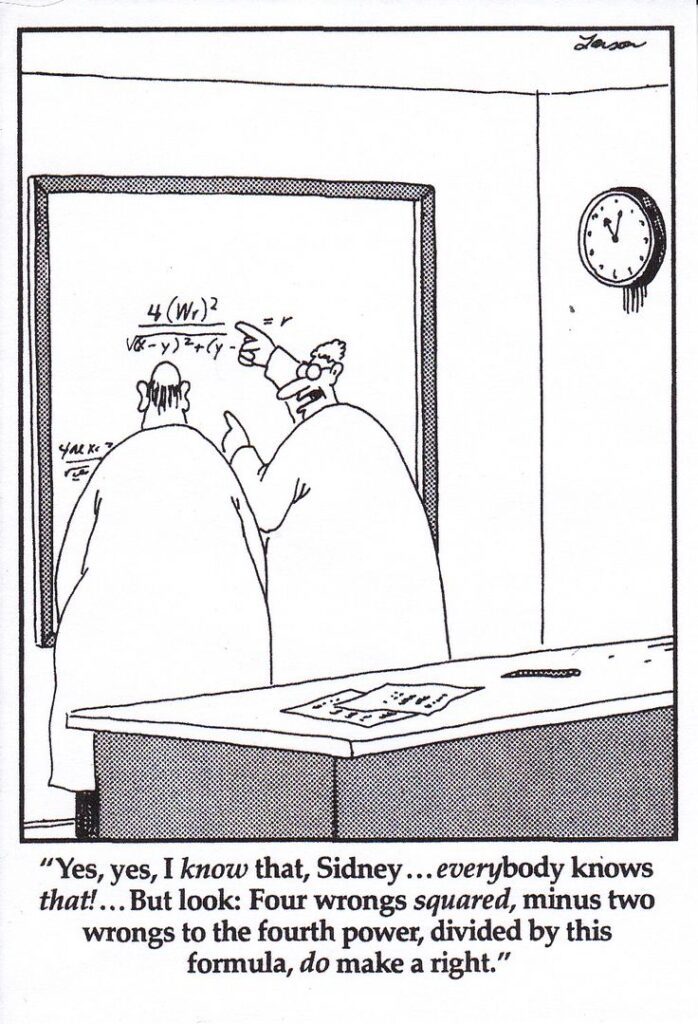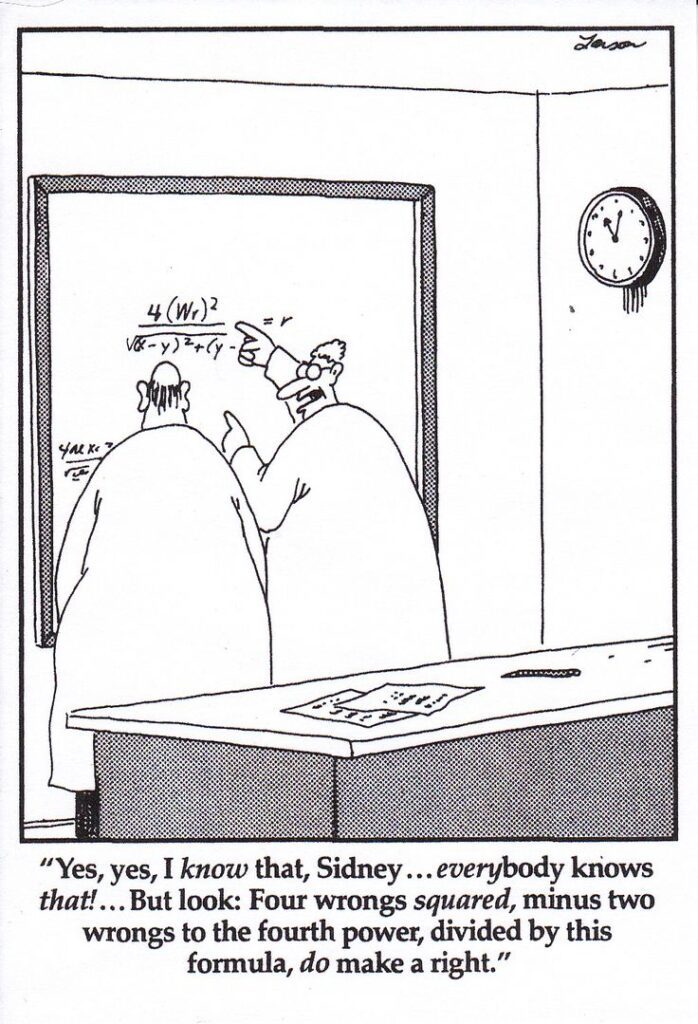I’ve said it before and I’ll always say it: most interpersonal, and personal for that matter, problems we have in life are due to miscommunication.
We can’t always fault the communicator any more than a mis-received punt or throw of a ball is the kicker or pitcher’s fault. We blow that catch. And blaming that on the person sending you that ball isn’t fair or productive.
We have two jobs here, but one is much more likely to improve things faster and easier than the other. Maybe.
That skill of course is listening, versus sending messages. Both are crucial. But what we say or write or send via semaphore and smoke signals is already known to us. We are the ones who create and develop the thought and ideas behind the message. How we send it most optimally is upon us as the individual to deliver it best. And that takes a lot of training and practice, whether it comes in the usual methods of writing or orally, or whatever.
That’s why I write here so often about how important being able to write effectively and develop your vocabulary and learn the meanings of words down to the abstract is important. It’s the idea behind poetry, for those that have always wondered or hated poetry. It’s about learning how to understand and appreciate an art form, much like a lot of artistic media. I will stop short of “modern art” however. Bu treading comprehension is a huge deal.
I would offer the reason for my separation from my ex-wife being communication difficulties. But the reasons for that have become apparent since we’ve split up. Although she has a doctorate, I’ve never seen her read a book. And she took a fast track through high school, undergraduate, graduate and PhD school. She skipped English, science, history, and most of English and Mathematics. Only good enough to pass federal and state developed standards, which is to say realistically, none.
I always marvel at her lack of knowledge of history, chemistry, literature, philosophy, and even art and business, especially since she went to a (public) “Art Magnet” school and got quickie degrees in business and a 4 year Ph.D., which is another topic for in-depth discussion. I’m not trying to trash her because that’s her business at this point. But I’m using it as a serious example of how even the highest regarded “academics” can miss the entire boat as it passes through their lives. And with real consequences for all, her students, the University, her family, including our daughter, and the unfortunate people that unwittingly cross her path.
Over the past years, it has become painfully obvious that there’s a reading comprehension issue at play between us. What I say or more importantly write isn’t what she hears or comprehends, despite it being written in concise, proofread, and heavily edited black and white. Same for a circuit court judge for that matter, who couldn’t read the plain, to me, messages I intended and were written as to be indelible. And it’s causing a lot of tears and destruction in people’s lives in real terms. This regrettable situation impacts everyone, not just me or the people in my life. If it did, then I wouldn’t even write about it publically. I’d just work on it much more quietly. But writing about it on a public forum keeps me accountable, focused and humble, hopefully.
However, the listening part of this article I want to be sure to explain, as clearly as I can, was derived from LISTENING to a song today I’ve heard thousands of times over the years. I listen, as intently as I can over high-definition audio, to songs all day every day. And I still pick up lyrics that change the entire way I hear the song. I think it’s probably safe to say most of us don’t accurately hear the lyrics in a song. That’s usually due to the way it’s presented by the vocalist, but again, that’s usually put upon the sender of the message, not for us to pick apart, play and replay and dissect until we hear exactly what was said, much less the context and intent of those words.
Sometimes the message in a song is easy, like with “Low” by Flo-RIDA. But other times it’s more obscure, esoteric, and wrapped in feathery acoustics, complex melody, and harmonics and destined for a wide amount of personal interpretation. And other times it’s just garbled like thinking Jimi Hendrix is singing “Excuse me while I kiss this guy” instead of “the sky.”
What put me on this train of thought today was listening to “Fun and Games by The Connells while I play with my 3D printer. Background music, as I always have playing. But today, after hearing that some a gazillion times, I actually listened to what Michael Connell was singing. We don’t pause to think that the lyrics to a lot of songs were penned under heavy emotion and meaning and seriously heartfelt by the composer.
It’s hard sometimes to come to terms with what the composer was thinking and meaning, which is the truth with most poetry which is what a lot of where lyrics are derived. We just don’t know unless we research the song. If you look at a lot of Robert Hunter and Jerry Garcia‘s lyrics, especially in their early works, it’s easy to spot which were the result of possibly chemically-induced dream states like “Dark Star” and which had much more sober intent, like “Ripple” and “Bird Song,” which was a tribute to Janis Joplin.
The lyrics to “Fun & Games” are:
Let me tear down into your heart
Let me take a seat and stay awhile
Let me tear down into your heart
Ah, fun and games.Let me steal a glimpse from your eyes
Let me pin it up and stare awhile
Let me steal a glimpse from your eyes
Ah, fun and games.Let me have a half of your whole
Let me keep it for myself awhile
Let me have a half of your whole
Ah, fun and games.Let me take the words from your mouth
Let me swallow them and speak awhile
Let me take the words from your mouth
Ah, fun and games.Didn’t I offer less than I lost?
Michael Connell
Didn’t I mean to find it all?
Look, don’t let me size it up.
Hey, right.
When I listened to this song today, I could hear my ex-wife singing them to me. (You think the marriage to and destruction of the same wouldn’t leave a major scar?) The ten years we were together were all “Fun & Games” as it’s now apparent.
But that tragedy isn’t the focus of this little essay. It’s the importance of conditioning ourselves to pause and give thought to the actual meanings of the words and how they were (hopefully, but not always by a mile) composed and strung together to give even more definition and heft and symbiotic worth the verse/phrase/sentence/paragraph.
When I go through the emails I’ve sent people over the years, it amazes me what they represent in terms of time and effort spent to carefully craft those messages. I’ll pore over some emails I sent some people because they’re so important. And my emails, not surprisingly, can be loooooooooooooong. And the ironic thing is, the longer and more carefully I edit them down, using a deliberately packed and powerful vocabulary, as I always try to do for the reader’s sake of interest, thought, and brevity, the more likely they are to be glossed over, misread or skipped and not read at all due to the possible complexity and overuse of polysyllabic words, depending on my audience. As I mentioned, my ex-wife I’ve distressingly found has the reading comprehension of an 8th grader despite having a business Ph.D. and a tenured position as a professor at a state University. So if she’s failing to understand carefully composed basic messages, it’s likely a lot of others are as well, I believe. Which is the reason behind this post. And I have to be careful.
As an aside, that brings up a phenomenon I have to walk a fine line upon. Some people will accuse me of being “intellectual” which is a thinly disguised insult of asking “You think you’re better than me?” My response, to myself, as to not engage in verbal sparring, is “No, not ever. I just know how to read and write beyond a level when you called it quits.” That’s their questionable decision, not mine. I’m not going to let their failure be mine in other words.
So what can we do to remedy this? I’d humbly suggest firstly reading more. And I don’t mean reading more crap on the internet, which is another massively destructive force against reading comprehension and linear, rational thought development. Not to mention relaying those thoughts in careful, concise, well-crafted sentences and not text-speak (how ru?)and emojis :-).
Secondly read and try to understand some enjoyable poetry. I understand it’s not everyone’s cup of tea, but often I see that the reason for repulsion of certain things, like foods, for example, isn’t the element itself, whether that’s okra, broccoli, or tomatoes. (Sometimes it’s understandable, like with liver or gizzards or soft breads. Barf.) It’s how they’re prepared and served, which was often the once and only time it was done, before the diner refuses to have anything to do with them at all, forevermore.
But it tried another way, so that they aren’t mushy, gloppy, or whatever the reasons being given for repulsion, it often makes them not only more palatable, but sometimes turns out to be the diner’s favorite dish.
/metaphor. However if poetry can’t be done, then try to listen and think about the actual words and what a vocalist is singing in your favorite songs. As mentioned, the lyrics are often penned from poetry, like with Morrisey and The Smiths, one of my favorite all-time bands, which may have to do with that very reason. And together, they make for passionately created messages, which is what makes music itself such a compelling and dynamic medium.
The development of a more refined and larger vocabulary does a lot of things. Not just for communication but for maturity’s sake and emotional well-being and for all interpersonal relationships in that person’s personal sphere. That’s a HUGE deal and statement if you think about it. Which is the plea and point of this piece of writing, which is growing under my very fingertips. I believe it’s that important.
It expands the person’s mental and emotional universe in which that person inhabits. On an abstract level. But it also opens up an entirely new set of levels to explore. You’re no longer held to conversing and inter-relating to other people that are beheld to a lower, more elementary, and truly basic level of thought, defined by their inner voice’s vocabulary and ability to develop thought itself. If you can’t express your thought and feelings to yourself in your head, then you will never be able to do that on a more dramatic and possibly important stage in real life. Even being able to explain this concept requires me to have more than a rudimentary set of communication and comprehension skills.
I believe it is a reason you will see a lot of people behave irrationally, including violently, often suddenly without warning. They are so incapable of expressing what they’re feeling and thinking, they explode. We see it with babies and toddlers. They don’t have the tools needed physically and mentally, to express what they want, much less NEED. So they cry and throw tantrums. And so do “adults.” It’s why we see “protests” and riots and public fights. There may be cultural and some external factors at play, but rarely will you see someone who is well-spoken suddenly start a street brawl. I’m sure it’s happened even in the hallways and courtyards of Oxford and Cambridge over their indelible existences, but those few circumstances are a rarity, and more of a comedic situation and something to see in a Far-Side cartoon than anything to fear as an onlooker.

Maybe I’m beating this dead horse into the ground. Which that in itself requires an understanding of the modern English language. I have a friend from China and I catch myself always having to eliminate southern, and English in general, colloquialisms. She doesn’t understand them, rightfully. That’s where I was speaking earlier of how it’s our duty sometimes to prepare the message to be understood, and not assuming the listener is equipped to receive anything we unfairly throw at them. We must be considerate and conscious of our audience.
The third way and these ideas aren’t in order of importance it should be noted, is by writing. I dedicate an entire “topic/category/page” on this very website to writing. I love writing and always have. Shamefully, more than reading. But I believe some people are creators and some are consumers. Most are both to some degree. Not all, and I know some fine examples of both. To make that a personal 50/50 situation is a truly dedicated effort for the insane.
It’s not because I’m all that great at writing, which should be obvious. Or at least debatable. It’s because it’s cathartic, yes, but also helps organize my thoughts and ideas either for immediate consumption or to build upon previous, smaller ideas and thoughts, which many times grow into some monsters, admittedly. But that’s fine.
That’s one of the very reasons I have this website and a blog. It’s not to bore the world to death, believe it or not. It’s to hear myself think and preserve thoughts for later reference by myself or others, at everyone’s peril. It’s to deposit ideas and thought to build upon and improve and hopefully do something productive to act upon. We all know “talk (meaning words) is cheap.” It’s our actions and what we do during our short lives that are meaningful. And hopefully, those acts have a larger purpose, and others, than ourselves in mind. It’s easy to just do what we want for ourselves. But that’s the very definition of “selfish” and doesn’t ingratiate you to the world or make you a very welcome member for that matter, at all. It doesn’t help you become a better person at least, which is something I constantly strive for personally. I have a billion faults at least. So mitigating those is a constant goal of mine. And writing about my failures keeps me accountable, humble and on the path to do and be better. But I’ve written about that elsewhere, and this isn’t about me personally as I’ve already stated. I try not to be redundant, which is another good thing about writing thoughts and ideas down in as organized a fashion as I can. I can go back and see where I can be more efficient and concise, or perhaps elaborate where I’ve been thin, abstract and there may be a space for misunderstanding I can correct. If I do it in my writing, I believe it eventually conditions how I think and helps with my impromptu speaking. Some people like William F. Buckley seem to be born with a superhuman elucidation, hypervocabulary, magniloquence gene.
Here’s a legendary debate with Buckley on a timely subject, that has been reignited by leftist politicians and media in the new millennium, 55 years later!


2 comments